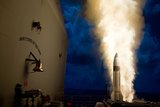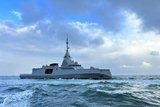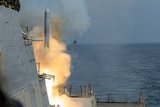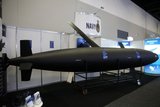German Navy's future 212CD submarines to be maintained in Norway
A common maintenance model between Germany and Norway will see German Navy submarines maintained at a support hub in Norway.
The two countries in 2017 signed an MoU that will see increased cooperation on a number of key programmes, including the integration of the Kongsberg Naval Strike Missile and the planned six-boat class of Type 212CD submarines, in a four-two split between Norway and Germany respectively.
The submarines, designed from the outset to be AIP variants, will be built by Germany’s ThyssenKrupp Marine Systems. The Type 212CD – denoting common design – will leverage existing capabilities of the current
Already have an account? Log in
Want to keep reading this article?
More from Naval Warfare
-
![US Pentagon claims to have severely damaged Iranian capabilities, promises to increase attacks]()
US Pentagon claims to have severely damaged Iranian capabilities, promises to increase attacks
US military authorities claim to have sunk 20 Iranian vessels and destroyed Tehran’s Air Force, with the Pentagon making plans to send additional assets to the region.
-
![US Navy SPY-6 approaches FRP with Raytheon already having “a hot production line”]()
US Navy SPY-6 approaches FRP with Raytheon already having “a hot production line”
Jen Gauthier, Raytheon’s VP of Naval Systems and Sustainment, told Shephard that the company is awaiting the US Navy’s green light to move “fully into full-rate production”.
-
![How the Golden Fleet will change the US Navy acquisition process]()
How the Golden Fleet will change the US Navy acquisition process
The procurement of the future USN Golden Fleet is planned to be less bureaucratic than previous strategies, involving AI-enabled designs and scheduling tools to increase productivity and avoid delays.
-
![What capabilities are being tested under AUKUS Pillar II?]()
What capabilities are being tested under AUKUS Pillar II?
Collaboration on AUKUS Pillar II extends beyond the core trilateral agreement, presenting global opportunities for companies with advanced technologies.






















